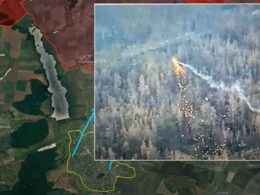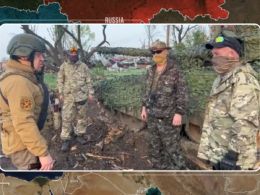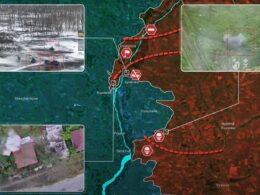1 July: there are a lot of updates from the Kharkiv direction.

Here, after suffering terrible losses while attempting to move forward in two initial vectors of advancements, Russian forces have suddenly opened a new vector of attack, west of their initial offensive through the international border near the villages of Udy and Zolochiv.
Reports emerged in the past days detailing a cross-border evening assault by a Russian sabotage group in the Zolochiv direction, northwest of Kharkiv. This operation, however, was identified as a reconnaissance mission rather than the onset of a larger offensive.
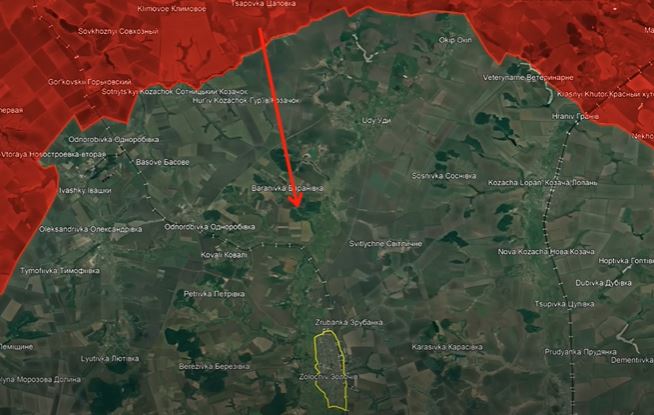
The Ukrainian General Staff confirmed that border guards successfully repelled the Russian assault near Sotnyskyi Kozachok. Andriy Demchenko, a spokesperson for the Ukrainian Border Guard, stated that the group crossed the border near the settlement and engaged in a small arms skirmish before being neutralized.

A Russian military blogger suggested that Russian forces are testing Ukrainian defenses in the area, with the assault likely aimed at creating operational ambiguity along the international border.
Ukrainian President Volodymyr Zelensky has warned that Russian forces are preparing for new offensive actions, concentrating a grouping of unspecified size near the border. Ukrainian military analysts have emphasized that these efforts should not be overlooked due to the tactical significance of the targeted area. The concentration of forces around the Russian settlement of Grayvoron creates uncertainty for Ukrainian armed forces, as it is situated almost equidistant from the major Ukrainian cities of Sumy and Kharkiv, approximately 100 km apart from each one.

Although the Russians currently lack sufficient troops and equipment to pose a substantial threat to either city, these maneuvers are likely part of a strategy to fix and draw Ukrainian forces along a broader front in northeast Ukraine.
One possible initial target for a new Russian offensive could be the village of Bohodukhiv.

Capturing this village would allow the Russians to disrupt Ukrainian logistics by controlling the local roads P45 and P46, which connect the Sumy and Kharkiv regions. This potential strategy was confirmed by the Institute for the Study of War, which observed satellite imagery indicating increased Russian activity at depots and warehouses in nearby settlements over recent weeks.
Consequently, Ukrainian forces have had to allocate manpower and resources across a wider section of the border to mitigate these threats. Kharkiv's Head of Military Administration, Oleh Synehubov, expressed concerns that Russian forces might intensify their operations in the Zolochiv direction, prompting Ukraine to closely monitor Russian movements in the area.
Additionally, the Ukrainian Main Military Intelligence Directorate intercepted and published Russian communications that confirmed the possibility of such attempts. These intercepted calls have provided valuable insights into Russian plans, reinforcing the urgency for Ukrainian forces to remain vigilant and prepared for a potential large-scale operation. The intelligence gathered highlights the continuous need for strategic planning and readiness to adapt to evolving threats along the northeastern front.
In response, Ukrainian drone operator units were swiftly deployed to act on the already gathered surveillance information.

Trending Now
They conducted a series of precision attacks aimed at disrupting Russian logistics and hindering the concentration of forces behind the international border.
The initial footage emerged from the Ukrainian 92nd Assault Brigade, which released several geolocated videos demonstrating their engagement with enemy targets. These targets included transport vehicles both stationary and in transit, enemy soldiers, and an observation post equipped with surveillance cameras used for monitoring Ukrainian activities near the border.

These attacks quickly became a daily occurrence, with various other drone units operating in the region sharing additional footage. This showcased their efforts in sabotaging Russian logistical operations, creating significant disruptions, and forcing the Russians to constantly adapt to the new threats.

The concerted efforts of these drone units have made it increasingly difficult for the Russians to maintain their supply lines and operational momentum in the area. The original uncensored footage of these operations can be found on our Telegram through the link in the description. It is worth noting that the recent surge in Russian activity towards Zolochiv and Udy is not their first attempt to sow chaos in this part of the Kharkiv region.
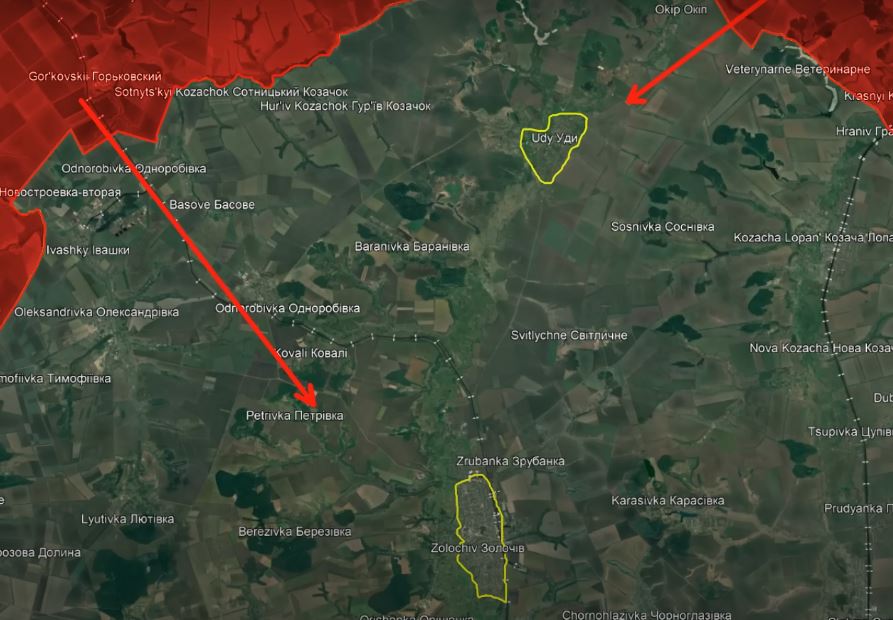
Approximately a month ago, the Russians initiated artillery strikes against Ukrainian positions near the village of Udy. However, these efforts were swiftly countered by Ukrainian forces. The counterbattery crews of the 92nd Assault Brigade effectively targeted Russian positions around the village of Schetinovka, successfully suppressing the enemy fire and abruptly halting this initial Russian offensive. Overall, the stalemate for Russian forces near Lyptsi and Vovchansk has prompted them to seek alternative methods to disrupt the Ukrainian defense.

Despite their depleted forces in the region due to significant losses, the Russians are once again preparing for a potential offensive northwest of Kharkiv. They aim to stretch the Ukrainian army thin across a broader front.

The Ukrainian command, fully aware of these movements, is closely monitoring the situation and has already implemented measures to counter any such attempts from the outset. These proactive steps are intended to maintain control over key villages and roads in the area. The prompt denial of any opportunistic advancement in this region may have already discouraged the Russian command from complicating their situation even more.
In our regular frontline report, we pair up with the military blogger Reporting from Ukraine to keep you informed about what is happening on the battlefield in the Russo-Ukrainian war.


